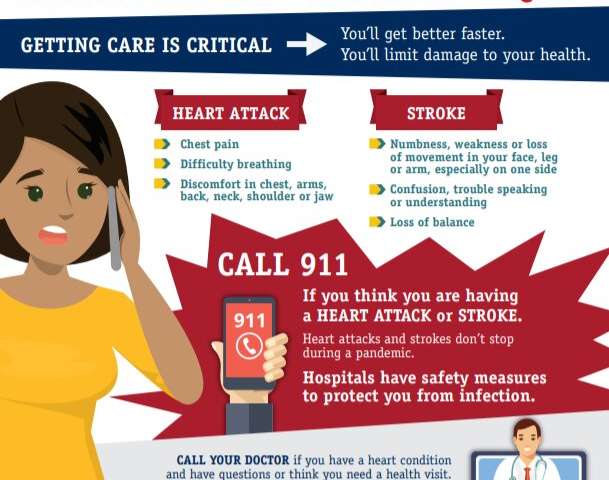
Through its CardioSmart patient initiative, the American College of Cardiology has issued guidance to encourage patients experiencing a heart attack or stroke to call 911. While hospitals across the United States are experiencing an influx of COVID-19 patients, clinicians are reportedly seeing fewer patients going to emergency rooms for heart attack or stroke. Experts worry that patients who need critical care are delaying their treatment over concerns about the novel coronavirus.
“Due to fears of contracting COVID-19 or taking up space in hospitals, patients experiencing a heart attack or stroke are delaying their essential care, causing a new public health crisis,” said Martha Gulati, MD, FACC, editor-in-chief of CardioSmart.org. “Hospitals and catheterization labs are still treating heart attack and stroke, not just COVID-19, and are taking the utmost precautions to ensure that the novel coronavirus not be spread. The faster a patient is treated, the higher the outcome of survival and lower the risk for complications. No patient should delay their care.”
A new CardioSmart infographic, “Coronavirus and Your Heart: Don’t Ignore Heart Symptoms,” encourages patients to pay close attention to heart attack or stroke symptoms, particularly if they have a pre-existing heart condition, and call 911 immediately if they believe they’re having a heart attack or stroke. The infographic details common heart attack and stroke symptoms and ensures hospitals are taking steps to protect them from COVID-19. The infographic also encourages patients to continue routine heart care to ensure they stay healthy, which may be accomplished through telehealth (remote or virtual visit) or a phone call with their clinician.
“We encourage clinicians to widely distribute these tools to their patients. Make sure that patients know when telehealth is an appropriate option, and when they should call 911 instead,” Gulati said. “Clinicians should work with patients to ensure medication adherence, and always continue to advocate for heart-healthy measures that can be taken even in times of self-isolation and social distancing.”
Source: Read Full Article
